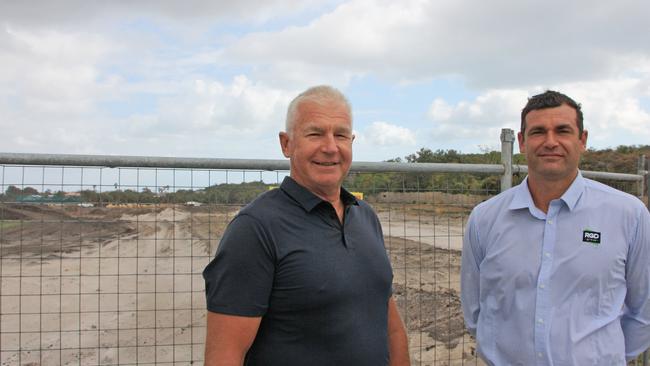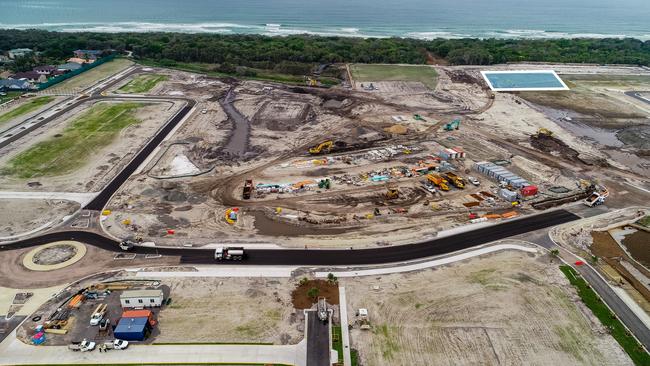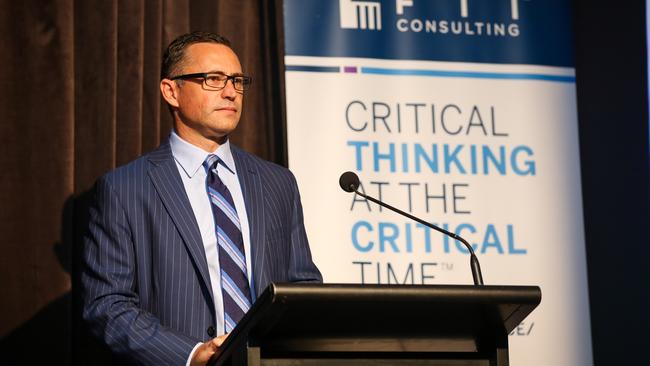Documents reveal meetings prior to builder collapse
Administrators met with RGD Group director Ron Grabbe and advisors several times before the major building firm’s collapse, it's been revealed.

Business
Don't miss out on the headlines from Business. Followed categories will be added to My News.
ADMINISTRATORS met with RGD Group director Ron Grabbe and advisors three times before the major Coast building firm's collapse.
Australian Securities and Investments Commission documents revealed Mr Grabbe, director of RGD Group Pty Ltd and RGD Constructions Pty Ltd and his company's advisors met with FTI Consulting administrators in the months leading up to the voluntary administration of the companies.
The meetings, between March 20 and May 8, when the administrators were appointed, were carried out to "obtain sufficient information about the company to enable discussions around the financial position of the company" the document, signed by FTI Consulting's John Park and Kelly-Anne Trenfield said.
REVEALED: WHEN CREDITORS CAN LEARN FATE OF BUILDER BUST
The meetings also served to explain the "various forms of insolvency appointments, the options available, and the consequences of an insolvency appointment".
FTI Consulting received a $55,000 upfront payment for the administration, paid by RGD Group shareholder Greg Clark.
Mr Clark was listed at the same Minyama Island address as Darryl Clark, director of Clark Group Constructions Pty Ltd, which currently has a builder's licence application in with the Queensland Building and Construction Commission.
Clark Group logos were also visible on websites of several major projects which had been RGD Group developments, including Seanna Residences at Bokarina Beach.
Mr Grabbe thanked the Clark family earlier this week for their "personal and financial support".

The ASIC documents showed Mr Grabbe and Mr Clark had been assisted by Porter Davies Lawyers with "legal matters surrounding the company's financial difficulties", and FTI Consulting had been referred the appointment by Porter Davies Lawyers.
Mr Park and Ms Trenfield had identified no real or potential risks to their independence, having noted Porter Davies referred work "from time to time" to FTI Consulting, but there was no formal or informal arrangement.
The report also stated the engagement was "not financially significant to FTI Consulting".
"There is no expectation, agreement or understanding between the administrators and the referrer about the conduct of this administration and we are free to act independently and in accordance with the laws and the requirements of the ARITA Code of Professional Practice," the report said.
The administrators also noted FTI Consulting was not reliant on referrals from Porter Davies, who were one of many firms who referred work to or sought advice from them.
The administrators said they'd received no remuneration for the information or advice given to the company's lawyers and director from March 20-May 8, or any other time prior to their appointment.
The documents also showed changes to company details which took place in late-February.
A change to company details form signed by Mr Grabbe on March 1 showed his son, Klint, ceased to be a director of RGD Group from February 25.
From the same date the document showed RGD Group Pty Ltd's ordinary shareholdings decreased by its entire 700, while Project Commercial Pty Ltd's ordinary shares also fell by the entire 300 held.

Mr Grabbe's 700,000 non-cumulative redeemable preference shares were also decreased entirely, with him no longer holding any.
The documents showed Greg Clark's shareholdings increased to the tune of 1000 ordinary shares and 700,000 non-cumulative redeemable preference shares.
Mr Park and Ms Trenfield also noted they believed there was no conflict of interest of duty, having also been appointed administrators of related entity RDG Constructions.
They said they had obligations in respect of each of the companies, and in their view the appointments would have "significant benefits to the conduct of the voluntary administrations".
Those benefits were identified particularly with regards to cost savings it could offer, and it would facilitate a "comprehensive and accurate understanding of the activities and financial position of the companies as a whole".
"We are aware there are inter-company transactions between the companies but at this time are not aware of any potential conflicts of interest arising from our appointments over the companies," the report said.
The first meeting of creditors, to be done electronically, has been scheduled for 11am on May 20.


